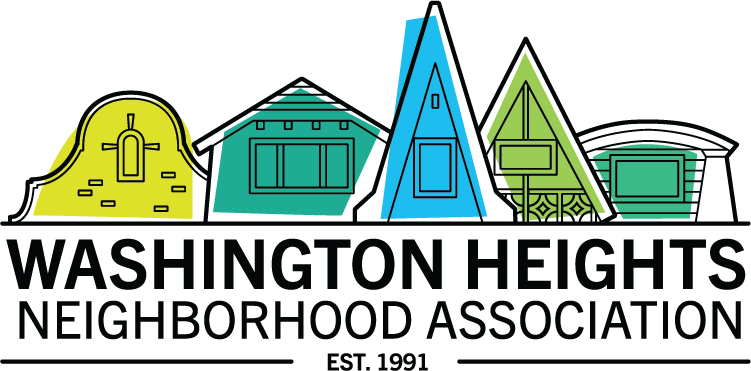The Benefit of an Organized Block
What is an organized block? (sometimes called a Block Club or a Block Watch)
Knowing your neighbors and communicating on a regular basis encourages a stronger community by building relationships, which improves the quality of life in a neighborhood. There are many ways that blocks organize themselves; the important part is organizing around issues that affect you and your neighbors in a way that works for you. The goal is to create a small town feel, where people care for and about each other.
An Active, Organized Block:
- Promotes getting to know neighbors, leading to a fun, safe, and appealing neighborhood to live, work, and raise a family.
- Teaches participants how to take preventative measures that substantially decrease the likelihood of becoming a crime victim.
- Brings law enforcement and the community together as a team. Members are educated in what suspicious activity is and how to accurately and promptly report it to law enforcement.
- Keeps participants informed about crime trends and patterns so they are better prepared to spot criminal activity and stop it in their neighborhood.
- Has a presence that makes politicians and the police more accountable.
Some of the activities that neighbors have utilized to get to know each other are:
- Hold social events such as block parties, movie nights, pot-lucks, clean-ups, block walks, games nights, etc.
- Invite speakers to block meetings, such as alderman, county supervisors, city departments, (i.e. Department of Neighborhood Services, Department of Sanitation, Fire Department,) etc.
- Develop a block map and an email contact list.
- Create a neighborhood newsletter.
- Form a Garden Club.
- Hold security training meetings conducted by the police department.
- Exchange services with neighbors, i.e. Babysitting, yard work, picking up mail when neighbor is out of town.
- Create an “out of town” watch.
- Invite local businesses to be involved with their neighbors, and to perhaps provide donations or financial support.
- Develop a schedule to check on elderly, handicapped, or ill neighbors.
- Create opportunities for the youth of the neighborhood.
- Form a “Virtual Block Club” for members to meet and have dialog via the Internet.
It is important for neighborhoods to participate in security training meetings conducted by the Police Dept. Many blocks start in this way and then develop the social aspect. Meeting participants receive Block Watch signs that remind neighbors to watch out for each other, as well as alert criminals that residents have taken the necessary steps to deter crime, are on the lookout, and will call the police when they see any suspicious activity.
Steps to get started:
- A good first step is to recruit two or three people on your block who are interested in helping to organize your neighbors.
- Select a time and a location to hold the initial meeting. This can be a home or a neutral location such as a church, library, community center, business, etc.
- If meeting purpose is for security training, contact a District 3 Community Liaison Officer (CLO) at 414-935-7733 to arrange a meeting date and time that is convenient to both of you. District 3 CLO Officers are:
PO Ashley Van Drisse • avandr@milwaukee.gov
PO Stephen Osmanski • sosman@milwaukee.gov - Create a simple flyer to explain the purpose of the meeting
and invite each household and business on your block to the meeting. If possible, revisit homes where no-one was
available to try and make a personal connection before leaving a flyer. - Distribute the invitations at least 7 to 10 days prior to the meeting.
- A block coordinator can be determined at this meeting if the initial planner or planners do not wish to fill that role. Neighbors to help the coordinator can be developed.
Duties of A Block Coordinator
The coordinator is the spokesperson for the block and the contact between the CLO (Community Liaison Officer) of your Police District and your neighbors. Duties include:
- Organize Block meetings by making arrangements to secure a location for the meeting and prepare an agenda that can be distributed to your members.
- Encourage all neighbors to be alert to the activity in the neighborhood and to report odd and suspicious behavior to the Police and to keep the neighbors informed.
- Pass on any valuable information received from your Alderman, Police Department and other City Departments. Having an email loop within your neighborhood will assist in expediting the information.
- Keep an updated map of the block area. This will have the names, addresses, and phone numbers of your members. A copy of this map is also given to your CLO.
Besides the Washington Heights Block Club and Safety Committee (Gary Haertlin, 414-282-2269, gmh99@sbcglobal.net,) other valuable resources for help getting started are:
- Caitlin Sprague, Safe and Sound, Inc., (414) 897-4190, (csprague@safesound.org)
- Common Council President/ Dist. 10 Ald. Michael Murphy (mmurph@milwaukee.gov)
- Dist. 15 Ald. Russell Stamper II (Russell.Stamper@milwaukee.gov)
References: Milwaukee Police Dept. document PCSD-16, “Block Captains Guide”
Chicago Police Dept. website https://portal.chicagopolice.org/portal/page/portal/BlockClub

